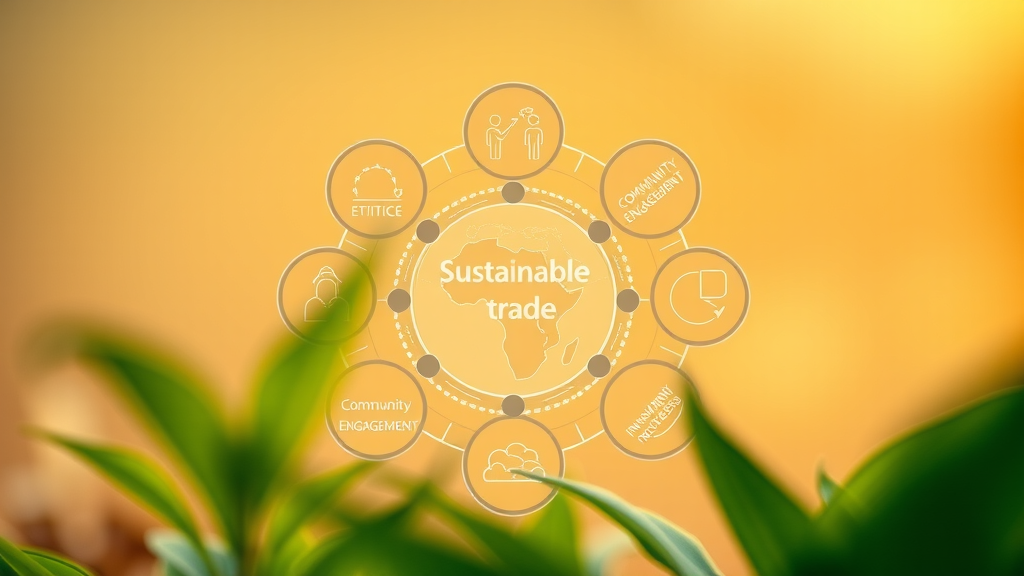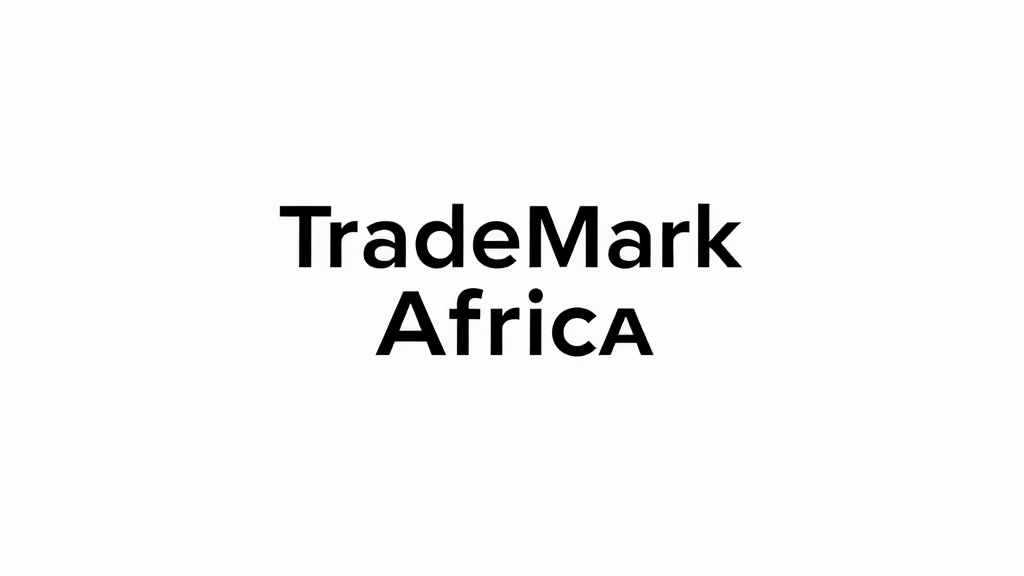Are sustainable trade practices the future of commerce? This article will delve into how TradeMark Africa is spearheading initiatives to transform trade in Africa sustainably, ensuring environmental sustainability, economic growth, and the well-being of local communities.
Understanding Sustainable Trade

Sustainable trade refers to trade practices that prioritize environmental protection, social responsibility, and economic viability. As global awareness of climate change and social inequality grows, understanding sustainable trade becomes crucial not only for businesses but for economies striving for resilience. Sustainable trade involves mechanisms that reduce negative impacts on the environment while enhancing community welfare.
To truly understand sustainable trade, one must consider its connection with various factors including fair labor practices, ethical sourcing, and environmentally friendly production processes. The integration of sustainability into trade practices is not simply an option; it’s becoming a necessity for businesses aiming to thrive in a changing global market.
The Role of TradeMark Africa in Promoting Sustainable Trade
Key Initiatives and Projects

TradeMark Africa (TMA) is at the forefront of promoting sustainable trade across the African continent. Founded in 2010, TMA works on a not-for-profit basis to enhance intra-African trade while addressing environmental concerns. One of its prime initiatives is developing trade infrastructure that makes processes more efficient and environmentally friendly.
Since its inception, TMA has implemented several successful projects, including reducing cargo transit times by 16.5% along key trade routes. This improvement is significant not only in promoting trade but also in minimizing carbon footprints associated with lengthy transit times, highlighting the direct correlation between efficient trade practice and sustainability.
Impact on Regional Economic Integration
The impact of TMA on regional economic integration is profound. By establishing more accessible and equitable trade routes, TMA facilitates local businesses’ growth and fosters cross-border collaborations. Such integrations are essential for countries in East Africa as they navigate the complexities of trade barriers and infrastructure deficits. For more insights on regional progress, visit Frontline News Channels Breaking News: Celebrating Progress Across East Africa.
Moreover, TMA's collaborations with regional governments and private sectors ensure that the benefits of economic integration are equitably shared, subsequently enhancing sustainable development across the continent.
Sustainable Trade Finance: A Catalyst for Growth

What is Sustainable Trade Finance?
Sustainable trade finance refers to funding mechanisms that withstand the test of economic, environmental, and social sustainability. It plays a critical role in supporting small and medium enterprises (SMEs) by providing access to capital while ensuring that funds are used in a manner aligned with sustainability goals.
By facilitating trade finance structured to meet sustainable standards, TMA aids SMEs, enabling them to invest in sustainable practices and technologies, thus further promoting sustainable trade.
Benefits for Small and Medium Enterprises (SMEs)
SMEs are often the backbone of African economies. Access to sustainable trade finance can empower these businesses, allowing them to compete on a global scale while adhering to sustainable practices. Benefits include enhanced productivity, better resource management, and improved reputation among conscious consumers.
Furthermore, through sustainable trade finance, SMEs can take advantage of innovative solutions, adopt green technologies, and ultimately contribute to a more sustainable economic model. For more on sustainability in action, explore Green Guardians: Sustainability in Action.
Strategies for Implementing Sustainable Trade Practices
Four Key Sustainable Strategies

Implementing sustainable trade practices requires a strategic approach. Here are four key strategies:
- Innovation in Trade Processes: Leveraging technology to streamline trade operations and reduce environmental impact.
- Ethical Sourcing: Prioritizing suppliers and partners committed to sustainable practices.
- Community Engagement: Involving local communities in trade initiatives ensures that development benefits all stakeholders.
- Transparency: Being open about trade practices and impacts helps build trust and accountability.
Best Practices for Businesses
To successfully implement sustainable trade practices, businesses must adopt best practices such as conducting regular sustainability assessments, engaging in continuous training for employees on sustainability, and adapting a lifecycle approach to their products—from sourcing to end use.
Additionally, aligning business objectives with sustainability goals will not only enhance corporate reputation but attract consumers who are increasingly prioritizing sustainability in their purchasing decisions.
Challenges and Opportunities in Sustainable Trade

Common Misconceptions
Many misconceptions surround sustainable trade, including the belief that it is more expensive or less efficient than traditional trade. However, with the changing landscape of global commerce, there’s a compelling argument that sustainable practices can enhance profitability and efficiency in the long run.
Future Trends in Sustainable Trade
The future of sustainable trade is bright with emerging trends such as digitization of trade processes, increased focus on ethical sourcing, and the rise of green consumerism. These trends are shaping how businesses will operate in an increasingly conscious market, creating new opportunities for innovation and growth.
Expert Insights on Sustainable Trade
TradeMark Africa emphasizes the importance of integrating sustainability into trade practices to ensure long-term economic growth.
People Also Ask
What is a sustainable trade?
A sustainable trade is one that seeks to minimize environmental impact while maximizing economic and social benefits.
What are the 4 sustainable strategies?
The four sustainable strategies include innovation in trade processes, ethical sourcing, community engagement, and transparency.

What is sustainable development in trade?
Sustainable development in trade refers to practices that balance economic growth with environmental preservation and social equity.
Key Takeaways

- Sustainable trade is essential for achieving long-term economic growth.
- TradeMark Africa plays a pivotal role in enhancing sustainable trade practices across Africa.
- Access to sustainable trade finance is crucial for empowering SMEs.
- Implementing key sustainable strategies can help businesses thrive in eco-conscious markets.
Conclusion
In conclusion, sustainable trade is not just a trend but a critical necessity for businesses and economies aiming for long-term growth and environmental responsibility. TradeMark Africa's commitment to promoting sustainable practices positions it as a leader in the pathway toward a more equitable and eco-friendly global trade environment.
Call to Action
To learn more about how sustainable trade can benefit your business or community, consider exploring TradeMark Africa's initiatives or implementing sustainable practices within your own operations.

 Add Row
Add Row  Add
Add 






 Add Row
Add Row  Add
Add 

Write A Comment